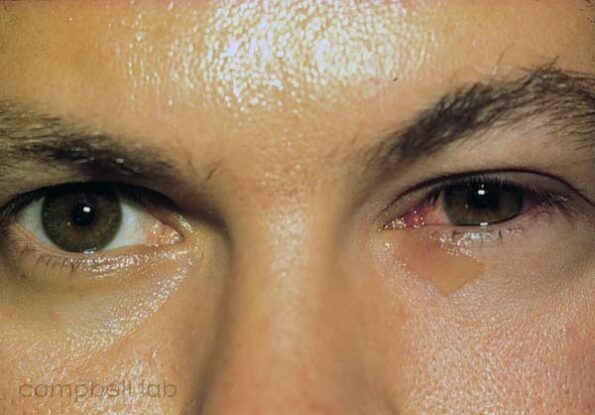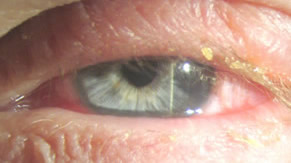Adenoviral conjunctivitis is an eye infection that affects the outermost layer of the eye caused by the adenovirus. Symptoms of adenoviral conjunctivitis can include redness, watery discharge, itching, and sensitivity to light.
It’s important to note that adenoviral conjunctivitis can be highly contagious, so it’s essential to take steps to prevent the spread of the virus to others.

The symptoms of adenoviral conjunctivitis include:
- Redness: The eyes may appear pink or red due to inflammation of the conjunctiva.
- Watery discharge: The eyes may produce a watery discharge that can be clear or cloudy.
- Itching: The eyes may feel itchy or scratchy.
- Swelling: The conjunctiva may become swollen, which can cause the eyelids to feel heavy or puffy.
- Sensitivity to light: Some people may experience sensitivity to light or photophobia.
- Blurred vision: In some cases, adenoviral conjunctivitis can cause blurred vision.
- Foreign body sensation: Some people may feel like there is something in their eye, even though there isn’t.
These symptoms can range from mild to severe, and they typically develop within a few days of exposure to the virus. Adenoviral conjunctivitis is highly contagious, so it is important to take precautions to avoid spreading the infection to others. If you experience these symptoms, you should see an eye doctor for diagnosis and treatment.


Treatment
Unfortunately, there is no specific antiviral treatment available for adenoviral conjunctivitis, as the infection typically resolves on its own within one to two weeks. However, there are several measures you can take to manage your symptoms and prevent the spread of the virus.
- Practice good hygiene: Wash your hands frequently with soap and water, avoid touching your eyes with your hands, and avoid sharing towels, pillows, or other personal items with others.
- Apply cold compresses: Use a cold, damp washcloth to help soothe the discomfort and reduce the swelling of the eye.
- Use artificial tears: Lubricating eye drops or ointments can help relieve the dryness and discomfort associated with adenoviral conjunctivitis.
- Avoid wearing contact lenses: If you wear contact lenses, remove them until your symptoms have resolved, and avoid wearing them while you have adenoviral conjunctivitis to prevent further irritation and spread of the infection.
- Consider prescription eye drops: In severe cases, your eye doctor may prescribe antiviral eye drops or steroid eye drops to reduce inflammation and speed up the healing process. However, these treatments are typically reserved for patients with severe or persistent symptoms.
It is important to note that you should always consult your healthcare provider before starting any treatment for adenoviral conjunctivitis, as they can help determine the best course of action based on your specific symptoms and medical history.


